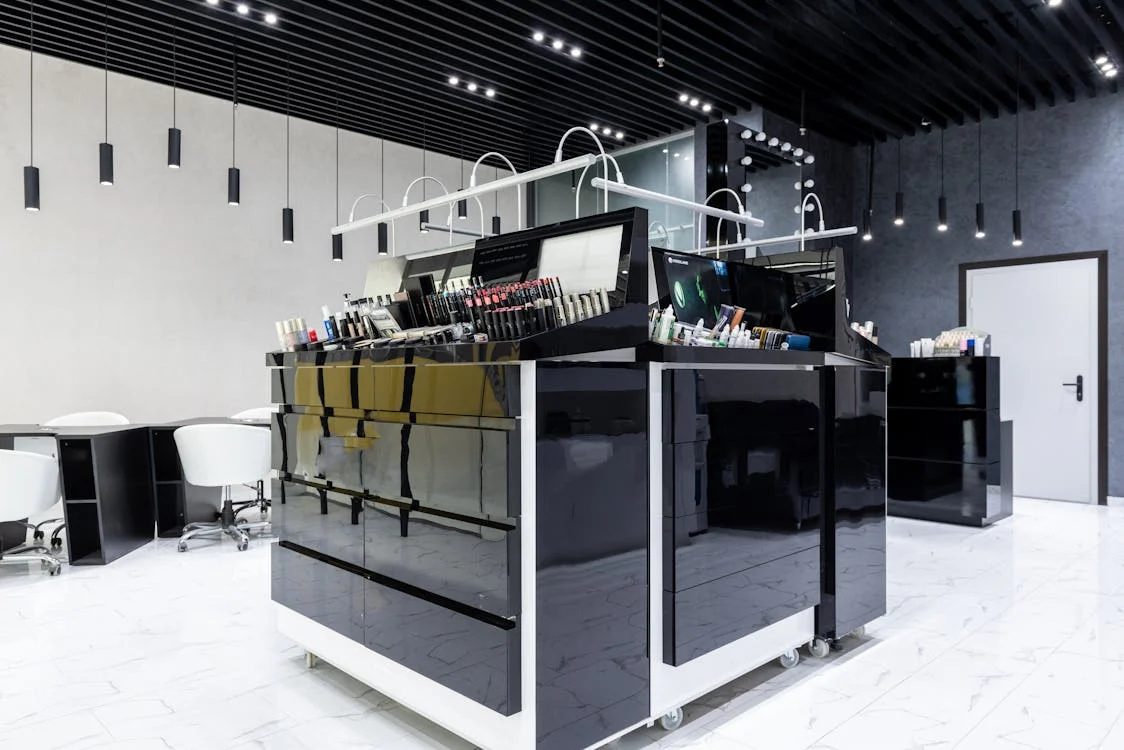Unlock the Secrets to Starting a Successful Cosmetics Business: A Comprehensive Guide

Are you passionate about cosmetics and dream of starting your own business in the industry? The cosmetics industry is a massive market worth billions of dollars globally. From makeup to skincare to haircare, the industry offers entrepreneurs many opportunities to create innovative products and build successful businesses.
Launching a cosmetics business may appear overwhelming, but it can be thrilling and fulfilling with proper guidance and resources. This comprehensive guide will unlock the secrets to starting a successful cosmetics business, from market research to branding and legal considerations.
This guide offers seasoned or novice entrepreneurs valuable advice and insights into navigating the cosmetics industry and transforming their passion into a profitable business venture. So, let’s dive into cosmetics entrepreneurship together and achieve success.
Conducting Market Research and Planning in the Cosmetics Business
Market research is vital when starting a business, especially in the cosmetics industry. Market research enables you to recognize potential customers, comprehend their requirements and preferences, and evaluate the competition, creating a successful business strategy. Here are some key steps to take when conducting market research and planning for your cosmetics business:
Identify Potential Customers and Competitors
Before launching a cosmetics business, it’s important to identify the target market and understand their needs and preferences. This can be done through surveys, focus groups, and social media listening. By analyzing data from these sources, you can obtain valuable insights into the specific products and services that your target market is seeking.
It is also essential to research your competitors. Identify the key players in the cosmetics industry and analyze their products, pricing, and marketing strategies. This will help you develop a competitive advantage and position your business effectively in the market.
Develop a Business Plan
Once you’ve finished conducting market research, the next crucial step is to develop a detailed, comprehensive business plan that outlines your company’s goals, objectives, and strategies. A business plan serves as a roadmap for your business. In addition, it helps you make informed decisions about resource allocation and growth opportunities.
Your business plan should include the following components:
- Executive summary
- Company Overview
- Market analysis
- Products and services
- Marketing and sales strategy
- Financial projections
- Management team and organizational structure
By creating a comprehensive business plan, you can communicate your vision for the business and secure funding from investors or lenders.
Financing and Resources for Your Cosmetics Business
Starting a cosmetics business requires careful financial planning and access to the necessary resources. This section will explore the key considerations regarding financing and resources for your cosmetics business.
Identifying Startup Costs and Financing Options
Before launching your cosmetics business, it’s important to identify the startup costs and financing options available to you. Some initial costs you may encounter include product development, packaging, marketing, and legal fees. Conducting market research and developing a business plan can help you estimate and plan for these costs accordingly.
If you’re looking to finance your cosmetics business, there are various options to consider, such as:
Bootstrapping: One option for funding a business is to use personal savings or assets.
Small Business Loans: Applying for a bank or other financial institution loan.
Crowdfunding: Raising funds from many individuals through online platforms like Kickstarter or GoFundMe.
Angel Investors: Attracting investment from individuals or groups interested in supporting startups.
Venture Capital: Attracting investment from venture capital firms, which typically invest in high-growth startups.
Conducting thorough research and evaluating various financing alternatives is crucial for your business. This will help you identify the best option that meets your needs.
Resources Needed for a Cosmetics Business
In addition to financing, a cosmetics business must access various resources [Link:] to operate successfully. You may require several essential resources, including:
Suppliers: Some companies offer raw materials, packaging, and other essential components required for your products.
Manufacturers: Companies that produce and manufacture your products according to your specifications.
Distributors: Companies that help get your products into the hands of retailers and customers.
Marketing and Sales Teams: Professionals who help create and execute marketing campaigns, build customer relationships, and manage sales channels.
Legal and Compliance Experts: Professionals who can help ensure your business complies with regulations and standards in the cosmetics industry.
Establishing connections with the right suppliers, manufacturers, distributors, and experts is essential for the success of your cosmetics business. In addition, it’s vital to ensure that your business has access to the necessary resources, and taking this step is crucial.
Legal Considerations for Your Cosmetics Business
Launching a cosmetics business requires more than a great product and a solid business plan. It also requires ensuring that your business operates legally and complies with relevant regulations and requirements. This section will explore the key legal considerations when starting a cosmetics business.
Applying for Business Licenses and Permits
Before launching your cosmetics business, you must apply for legal licenses and permits. The licenses and permits required for your business can vary depending on your location and business type. However, some commonly required licenses and permits may include the following:
Business License: A general license is required to operate a business in your location.
Sales Tax Permit: A permit allowing you to collect and remit sales tax on products sold.
Health Department Permits: Required if you plan to manufacture or sell cosmetics regulated by the FDA.
It’s important to research the specific licenses and permits required in your area and ensure that you obtain them before launching your business.
Understanding Regulations and Compliance Requirements
For businesses operating in the cosmetics industry, it is essential to have a comprehensive understanding of the industry’s regulations to ensure adherence. The Food and Drug Administration is a crucial regulatory agency in the US, responsible for supervising various products, including cosmetics, to ensure compliance with the Federal Food, Drug, and Cosmetic Act (FD&C Act).
Some of the key regulations and compliance requirements to be aware of include:
FDA Regulations: The FDA regulates cosmetics to ensure they are safe and properly labeled. This includes requirements for ingredient labeling, product claims, and product testing.
Labeling Requirements: Cosmetics must have labels containing their ingredients, along with other essential details like net weight or volume, manufacturer’s name and address, and necessary warnings or precautions.
Good Manufacturing Practices (GMPs): The FDA has established GMPs for cosmetics to ensure their safe and consistent production.
Working with legal and compliance professionals ensures your cosmetics business complies with these regulations and requirements.
Product Development and Branding in Your Cosmetics Business
Developing a product line that caters to your target customers’ needs and preferences is crucial for success in the cosmetics industry. This involves thorough research, development, and effective branding strategies. That is why creating a brand identity that distinguishes your business from competitors is important. This section will explore the key considerations regarding product development and branding in the cosmetics industry.
Developing a Product Line
When developing your cosmetics product line, it’s essential to understand your target customers and their preferences. Thorough market research and feedback can help you better understand potential customers’ preferences. This can provide insight into the specific products they seek and the preferred ingredients and formulations.
When selecting products, it is crucial to consider their quality and safety. You also want to create effective, safe, and appealing products for your target market.
Creating a Brand Identity
Creating a strong brand identity is essential in the cosmetics industry, where competition is fierce. Your brand should reflect your values and the unique qualities that set your business apart from competitors. This can include factors such as the quality of your products, your commitment to sustainability, or your focus on natural ingredients.
Ensure your brand looks the same on everything – from packaging to marketing to your website. Developing a distinct and consistent brand identity can significantly boost your company’s exposure and set it apart in a highly competitive industry.
Marketing and Sales in Your Cosmetics Business
Marketing and sales are critical components of any successful cosmetics business. This section will discuss developing a marketing strategy to reach your target customers and establish effective sales channels to distribute your products.
Developing a Marketing Strategy
You’ll need to develop a marketing strategy that leverages various channels to reach your target customers. These can include social media marketing, influencer partnerships, email marketing, and paid advertising. It’s crucial to determine and concentrate your efforts on the most effective channels to effectively reach your target audience.
In addition to leveraging various marketing channels, creating compelling marketing content is important. This can include product photography and videos, blog content, and social media posts that highlight the benefits of your products and communicate your brand identity.
Establishing Sales Channels
When selling cosmetics, consider several sales channels. Online marketplaces like Amazon and Etsy can be a great way to reach a wide audience and establish your brand. You can also consider retail stores and direct sales through your website or at events.
One effective way to sell your products in retail stores is by using cosmetic racks. These racks allow you to display your products in an organized and visually appealing way, making them more attractive to customers. In addition, consider offering incentives such as discounts or free samples to encourage customers to purchase your products.
Operations and Management in Your Cosmetics Business

Efficient operations and effective management are crucial for running a successful cosmetics business. In this section, we’ll discuss how to set up operational systems and procedures and manage employees and suppliers to ensure quality control and timely product delivery.
Setting Up Operational Systems and Procedures
You must set up operational systems and procedures to ensure efficient business operations. These can include inventory management, order processing, shipping and handling, and customer service. Clear processes for each aspect of your business operations are essential to ensure everything runs smoothly.
Consider using software and tools to streamline your operational systems. For example, inventory management software can help you keep track of your stock levels. In contrast, customer service tools can help you manage customer inquiries and support.
Managing Employees and Suppliers
Managing employees and suppliers is another critical aspect of a successful cosmetics business. You’ll need to ensure you have the right team to handle various tasks, such as product development, marketing, and customer service.
Moreover, it is crucial to establish and maintain good relationships with your suppliers to guarantee that you receive superior quality materials and timely delivery of your products. Finally, it is crucial to implement quality control procedures to ensure that the products meet the required standards and surpass customers’ expectations.
Unlocking the Beauty Entrepreneur Within
Starting a cosmetics business is challenging. Still, with the right approach and resources, it can be highly rewarding and profitable. This guide covers essential aspects of starting a cosmetics business, including market research, financing, legal considerations, product development, branding, marketing, and operations.
To summarize, conducting thorough market research is crucial to identifying potential customers and competitors, developing a comprehensive business plan, and identifying startup costs and financing options. You must also comply with legal requirements, create a product line that meets customer needs, develop a brand identity, and establish marketing and sales channels.
If you’re passionate about cosmetics and driven to succeed as an entrepreneur, starting a cosmetics business can be a fulfilling career choice. You can pursue your passion for entrepreneurship in the cosmetics industry.

